Can You Freeze Vegetables?
Vegetables are easily available on the market, but they are seasonal. They also tend to rot sooner because they contain water. However, vegetables taste their best when they are in season and typically cost the least. But if you want to have certain off-season veggies sometimes, what can you do? Can you freeze vegetables?
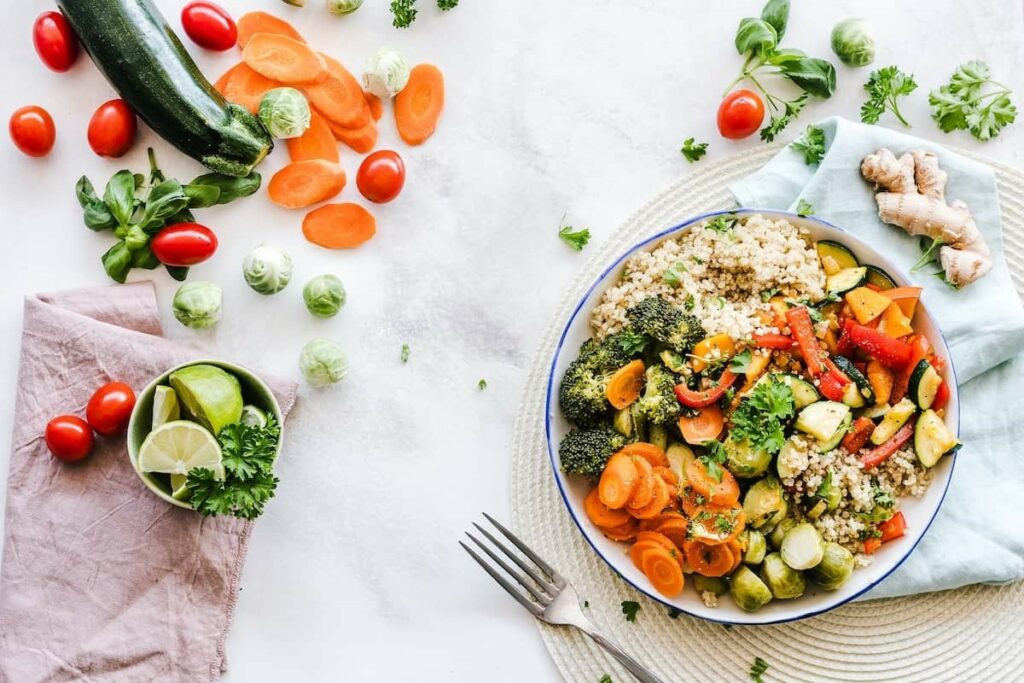
Yes, vegetables can be frozen efficiently. You can freeze just about any vegetable. And to relish the flavor and freshness of vegetables long after their season has passed, it is ideal to freeze them properly. Yet, not all vegetables can be frozen. How will you decide if they are freezable?
Almost anything is freezable by applying proper freezing techniques. Vegetables are surely on that list. And freezing vegetables means you have food stock for the long run. Freezing vegetables also decreases your hectic grocery store trips, doesn’t it? So, why not!
Why Do You Need To Freeze Fresh Vegetables?
The freshness of vegetables is effectively preserved when properly frozen. The nutrients are preserved for a long time when vegetables are frozen. Vegetables tend to discolor and turn pale within a couple of weeks when stored at room temperature. And therefore become inedible. This is because they contain water. It leads to wastage as well.
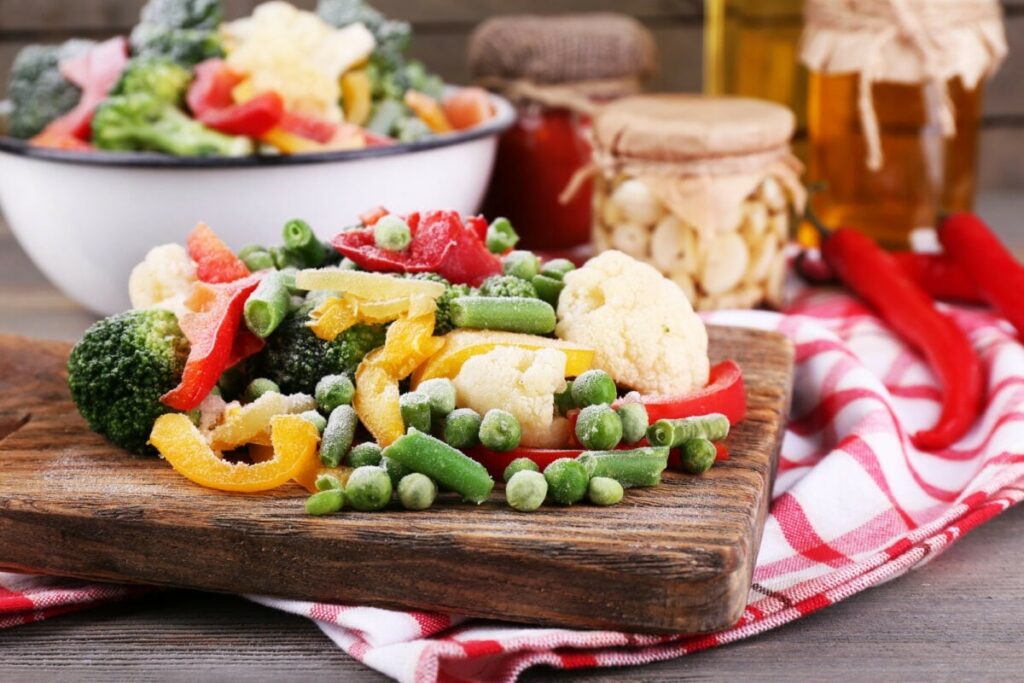
Freezing vegetables effectively preserves them at the peak of freshness. It also means you can store them for longer and keep their nutritional value intact. While you might not be able to use your frozen vegetables for salads or roasting, there are many cooked recipes, such as kinds of pasta and soups, where you can use them.
How Can You Freeze Vegetables?
Different types of vegetables demand slight variations in their freezing technique. For instance, you need to saute or puree some vegetables before freezing, while others need to be cut. Here we will discuss the general law of freezing that works for most vegetables.
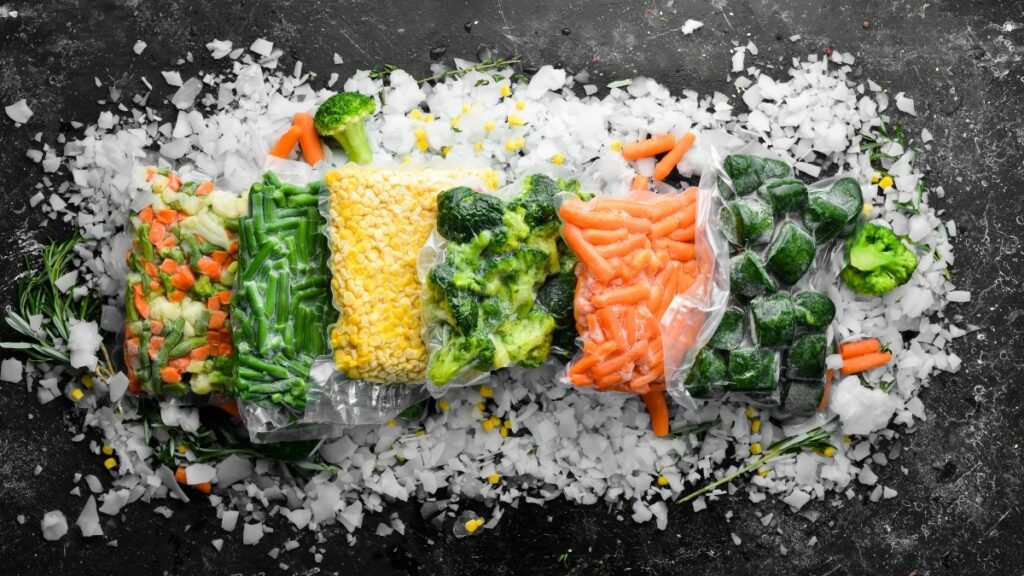
However, it is advised not to freeze raw vegetables. While you can freeze onions and peppers, raw, blanching other veggies before freezing is ideal. You can also freeze cooked vegetables. The enzymes that cause discoloration and make frozen vegetables mushy are stopped by blanching or cooking them.
How Can You Blanch Vegetables?
Blanching is important before freezing vegetables. It is a method to steam them. And if you intend to prepare vegetables only for freezing, the blanching should be taken care of. Here is a quick guide on how to blanch veggies. Take a look.
- Pour water into a large pot or saucepan and bring it to a boil.
- Soak the vegetables in the hot water for an appropriate amount of time or until they are soft.
- Make sure they are only firm and you do not cook them.
- Rinse the vegetables out of the hot water and set them aside in an ice bath.
- The ice will stop further cooking. Then take the veggies out and put them on a paper towel.
- Pat dry all the remaining moisture, and your veggies are ready to freeze.
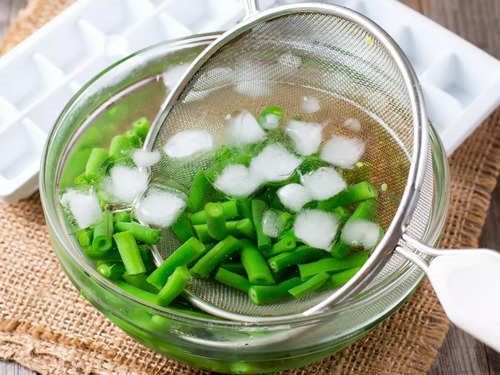
How To Freeze Vegetables? Check out the steps here.
- Vegetables should be properly washed and pat-dried first. Then you can chop them into even pieces to make them easier to handle.
- Either blanch or cook them as you wish and let the vegetables cool down completely. You can place them in an ice bath to stop further cooking.
- Once the vegetables cool down, properly, remove them from the ice bath and spread them on a tray in single layers to solidify. Make sure they do not overlap. Doing this will avoid clumps while freezing.
- After flash freezing, carefully transfer the vegetables to freezer bags or airtight containers. Seal the bags adequately so that they do not undergo freezer burns.
- Label and date the bags, so that you know how old the vegetables are. Make sure each bag or container is watertight as well, and stack them into the freezer for freezing.
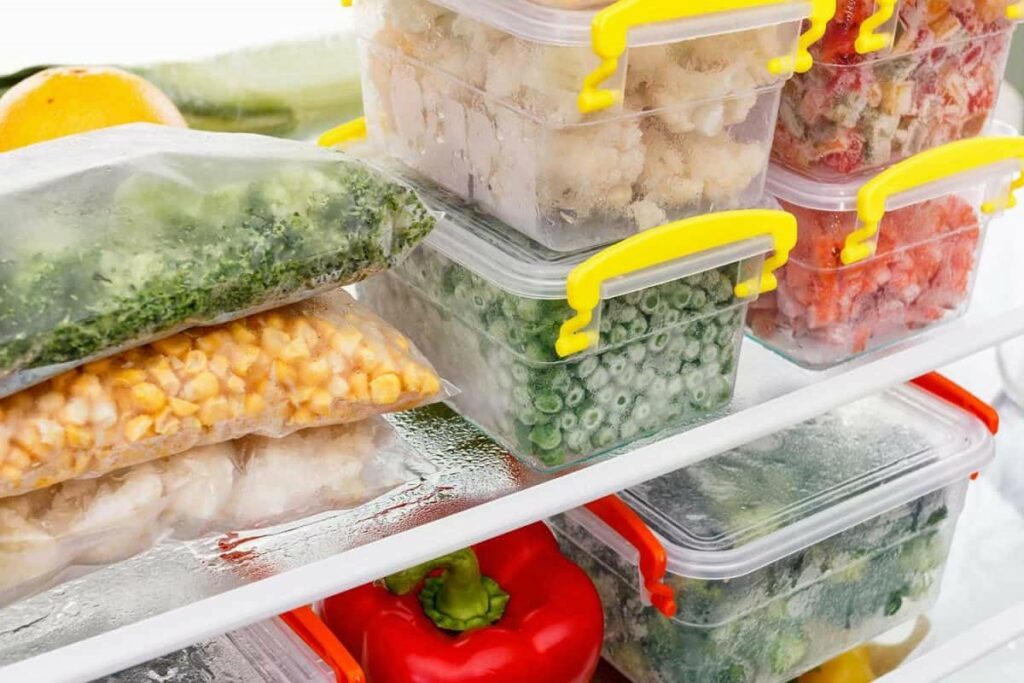
5 Best Vegetables To Freeze
Green vegetables like spinach, kale, and collards, as well as others like corn, peas, broccoli, cauliflower, carrots, green beans, and squash, freeze well. While there are other vegetables you can freeze, we are going to talk about the 5 best vegetables to freeze.
Potatoes In The Freezer
Potatoes are high in water content. Even after being cooked, they contain a lot of water. Therefore, proper care should be taken while freezing potatoes. If you wish to freeze cooked potatoes, then follow the basic freezing steps.
However, if you intend to store potatoes for longer. Make sure to blanch them or boil them before freezing them. Also, it is vital to flash-freeze potatoes before storing them in freezer bags. This will save your potatoes from getting spoiled. And this way you can store them for up to 6 months.
Corn In The Freezer
You can freeze corn whole, but freezing corn kernels would be beneficial. This will make them manageable while freezing and thawing later. Select fresh corn and remove the silk and skin. Carefully cut the kernels from the cob.
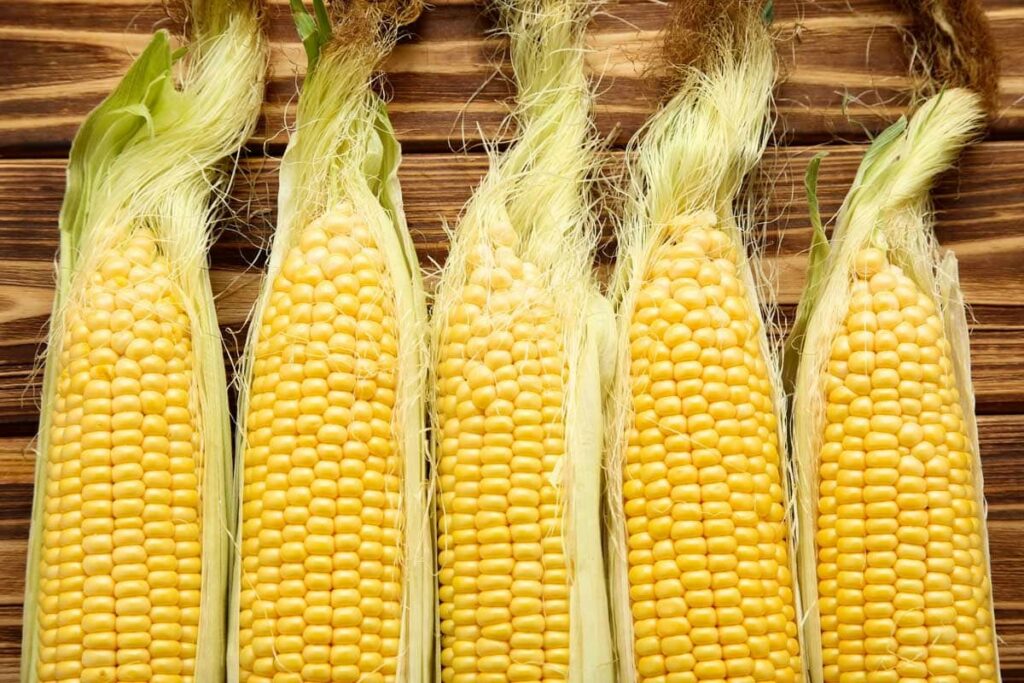
Corn needs to be blanched for at least 4-5 minutes before freezing. Once they are firm and cool down completely, you can freeze them in airtight bags. Frozen corn can last for up to a year and sometimes even more. Also, you can similarly freeze peas.
Freeze Cauliflower And Broccoli
Cauliflower and broccoli contain stems. But they cannot be frozen with their stems on. So, you need to remove the stems and trim the extra leaves before preparing these vegetables for freezing. This is done to provide better freezing of the vegetable.
You need to blanch cauliflower and broccoli and let them cool in an ice bath. Because they are already delicate veggies, they are easy to cook and blanch. So make sure to check the cooking time. Let them solidify in the fridge for some time before putting them in the freezer.
Freeze Vegetables Like Onions And Peppers
Unlike other vegetables, onions, and peppers do not need to be blanched before freezing. They can be frozen raw. All you need to do is slice or dice these veggies, remove the seeds from the pepper, and flash-freeze.
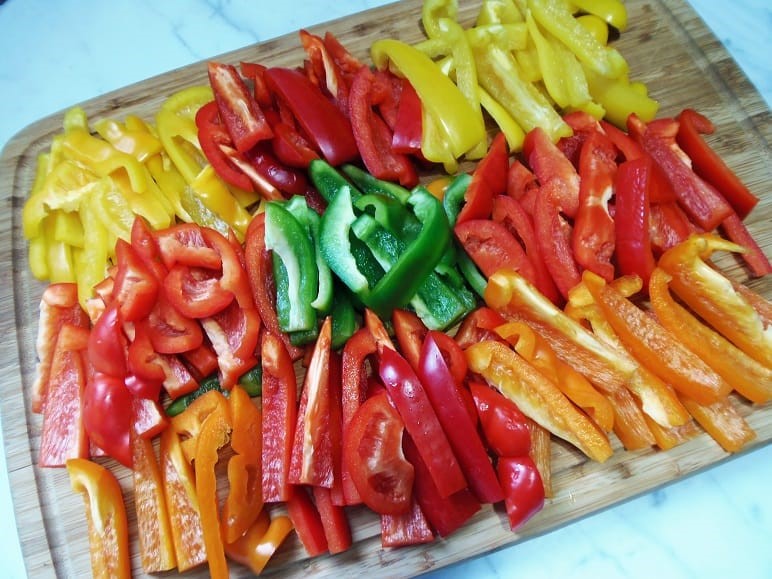
After flash-freezing, carefully transfer them into ziplock bags. Make sure they are watertight and excess air is removed from the bags to avoid any freezer burns. And then your onions and peppers are ready to freeze. Doing this increases their shelf-life by up to 8 months.
Freeze Vegetables Like Spinach, Green Beans, And Kale
Spinach is a leafy vegetable. Therefore, it is advised to make spinach puree before freezing them. Green beans and kale, on the other hand, need to be cut precisely before freezing. These green vegetables are delicate and therefore need special attention while freezing.
You need to effectively blanch and flash-freeze spinach, green beans, and kale before freezing. Flash-freezing here is important to remove all the excess water from these vegetables. This will make sure better and in this way, they can last for around 6 months.
Vegetables That React To Freezing
All vegetables except celery, watercress, endive, lettuce, cabbage, cucumber, and radishes can be frozen. This is because these vegetables are high in moisture content, which is not particularly beneficial for freezing.
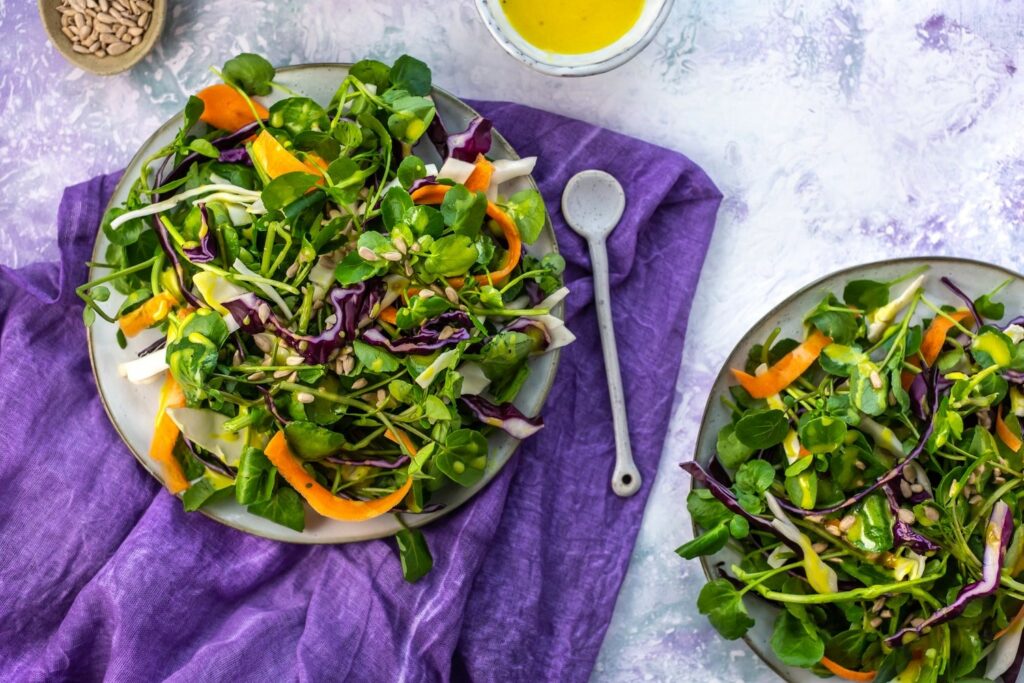
Even if you try to freeze them, these vegetables will lose taste and texture. And when you try to defrost such vegetables, they become soggy and mushy. Therefore, it is advised not to freeze vegetables that have very high water content.
How Long Do Frozen Vegetables Last?
Frozen vegetables can last for up to 18 months in the freezer. This is not the same for every vegetable, though. It solely depends on the type of vegetable you intend to freeze.
Vegetables tend to lose their texture and flavor the longer they are kept in the freezer. It is therefore advised that you use them before they start to deteriorate. It is very easy to thaw frozen vegetables. All you require is to thaw them in the refrigerator overnight before cooking them in whatever way you like.
